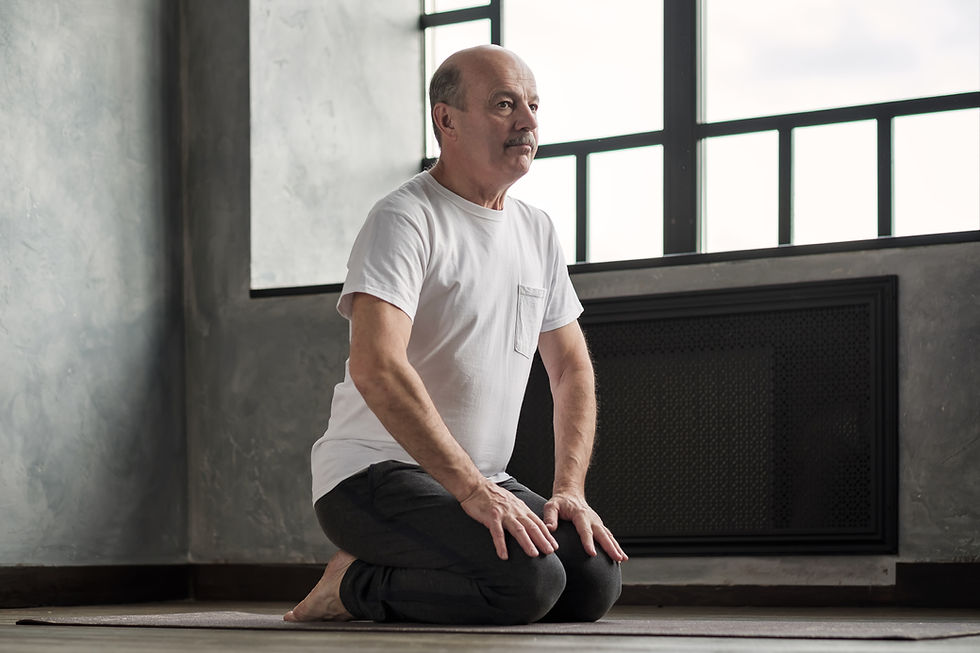10 Little-Known Facts About Brain Injury Recovery & How Neurological Physiotherapy Helps
- taher DHULIAWALA
- Mar 12
- 2 min read
Introduction
March 10-18 marks Brain Awareness Week, an important time to learn more about brain function, injury prevention, and recovery.

A brain injury doesn’t just impact thinking—it can affect memory, vision, emotions, balance, and even movement. The good news? The brain has an incredible ability to heal and rewire itself with the right rehabilitation.
Here are 10 little-known facts about brain injury recovery that everyone should know.
1. Your Brain Can Rewire Itself (Neuroplasticity)
After an injury, the brain creates new pathways to regain lost functions. But this doesn’t happen on its own—it requires repetitive training, therapy, and movement to activate neuroplasticity.
How NeuroPhysio Helps: Targeted exercises help the brain reconnect and retrain movement and cognitive functions.
2️. Rest is Important—But So is Movement!
In the early days after an injury, rest is critical to allow the brain to heal. However, too much inactivity can slow progress. Once cleared by a doctor, controlled movement helps activate brain function.
How NeuroPhysio Helps: Gradual exercises ensure safe and effective rehabilitation without overstimulating the brain.
3️. Memory Loss Can Improve Over Time! 🧩
Brain injuries often affect memory, but memory function can be rebuilt with structured rehab. Simple cognitive exercises like recalling daily events or problem-solving tasks strengthen memory pathways.
How NeuroPhysio Helps: We incorporate brain training activities to support memory recovery alongside physical rehab.
4️. Vision Problems Are Common After a Brain Injury!
Did you know the brain controls most visual processing? Brain injuries can lead to blurry vision, double vision, or difficulty tracking objects.
How NeuroPhysio Helps: Vision training exercises help improve focus and eye coordination.
5️. Fatigue Isn’t Just Physical—It’s Neurological!
Many people with brain injuries experience severe fatigue, not just from physical weakness but because the brain is working harder to complete tasks.
How NeuroPhysio Helps: Energy management strategies help conserve brainpower and improve endurance.
Repetition Helps Rewire the Brain!
Recovery works like learning a new skill—the more you repeat movements or cognitive tasks, the stronger the neural pathways become.
How NeuroPhysio Helps: We create repetition-based training programs to maximize recovery.
Depression & Anxiety Are Common After a Brain Injury!
Changes in brain chemistry, emotions, and self-perception can lead to depression or anxiety. It’s not just psychological—it’s neurological!
How NeuroPhysio Helps: A combination of movement, cognitive training, and emotional support can improve mental well-being.
Balance & Coordination Are Often Affected!
Brain injuries can impact posture, coordination, and stability, increasing the risk of falls.
How NeuroPhysio Helps: Balance training, gait retraining, and core exercises help rebuild stability and prevent further injuries.
Small Lifestyle Changes Can Prevent Further Brain Injuries!
Once a person has had a brain injury, they are more vulnerable to future head trauma. Even minor bumps can cause complications.
How NeuroPhysio Helps: We educate clients on fall prevention, posture correction, and strength training to protect against further injuries.
Online Brain Rehab Works Too!
Many people can’t access in-person rehab, but online neurological physiotherapy is just as effective when done correctly.
How NeuroPhysio Helps: Our NeuroAble online program provides professional led, home-based therapy for brain injury recovery.
Conclusion: Your Brain Can Heal!
Brain injuries may change lives, but recovery is possible. With the right rehabilitation, memory, movement, vision, and emotional well-being can improve over time.
Below are links to groups that can help and support you if you have or had a brain injury or stroke.




Comments